Workshop on Modeling Management of Climatic Stress in Rice-based Cropping Systems: Application of the AgPractices&Domains Platform
7-8 October 2021
Background and Rationale
Food and nutrition security of Southeast Asian countries still relies mostly in smallholder farmers whose farming systems are in vulnerable areas prone to various abiotic and biotic stresses. Biotic stress management remains a main challenge as this requires accurate estimations of viable conditions for efficient production. Notwithstanding the shifts in seasons and likewise aggravated with pest and disease, these attainable yields vary between fields at farm and landscape levels.
Modeling is a useful research tool that can help research to detangle key determinants of productivity under stresses. Decision making support models can generate valuable specific information to improve farming systems productivity and its impact at different scales, ranging from the field to sub local region, and to entire country.
Within the above premise, the AgPractices&Domains tool is being developed by the University of Southern Queensland (USQ). It aims to provide integrated pest and disease management options in rice based cropping systems. From the use of tool comes the platform that will allow a network of researchers carry out rice cropping systems' monitoring and evaluation combined with a documentation of community of practices that will further facilitate learning and exchanges between institutions and countries.
Meanwhile, SEARCA is currently developing a knowledge platform for supporting research activities in the SEA region by tapping into relevant information on agriculture, forestry and natural resources. The AgPractices&Domains tool by USQ will a working foundation for the SEARCA knowledge platform and network to develop large scale application including major rice growing areas in Southeast Asia and as well broader application in different crops.
Objectives
The webinar will be a venue for presentation, discussion and consultation of the AgPractices&Domains tool and a training that will be attended by about 50 participants from the SEA countries. Specifically, this aims to:
- Promote the use of AgPractices&Domains tool to advance agricultural research in delivering technologies and practice improving cropping systems productivity and adaption to climate variability;
- Train targeted to potential end users of the tool; and
- Generate feedback on the web-based application interface for further development.
Intended Participants
Participation in the workshop is free to qualified participants, coming from the academe, research institutions, development organizations, national government offices, and local government units who are involved in education, policy planning, research, and extension, who have an expert background on agronomy, agriculture, and modeling systems.
The training will delve on the application of the AgPractices&Domains tool using the web-based application that will allow researchers to collect, analyze and present data on climatic pest and disease risks on rice cropping systems. The application which will be housed at the SEARCA knowledge platform aims to provide a one stop shop for researchers in the evaluation of the impact of practice changes in managing these risks and in defining domains where these risks are of high priority and require close monitoring.
Webinar Exercise and Data Requirements
The participants will have the chance to experience the use of the AgPractices&Domains tool using the sample data collected and organized by USQ. The input panel which has information about the area, and season and coordinate-based field level sowing dates, crop variety, growth, duration, harvest date, yield, nitrogen, water and pest and disease management, and pest and disease observations. The participants will be able to use these inputs based on their selection of research interest to generate survey template for current simulations and predictions validation.
Program Overview
| Day 1 (October 7) | Day 2 (October 8) |
|---|---|
| I. Opening Session (1 hour)
| III. Tool Application (1 hour)
|
| II. Technical Session (2 hours)
| IV. Practical Exercises (2 hours)
|
Workshop Agenda
Click to view the details
| 11:00 – 11:15 a.m. | Messages | Mr. Sanggyun Kim Pr. Gavin Ash Dr. Glenn B. Gregorio Dr. Ruben M. Lampayan |
| 11:15 – 11:25 a.m. | Project and Workshop Overview | Dr. Pedcris M. Orencio Program Head Research and Thought Leadership Department (RTLD) SEARCA Download the presentation |
| 11:25 – 11:35 a.m. | Introduction of Participants, Resource Persons, Workshop Management Team | Dr. Nova A. Ramos Unit Head Education and Collective Learning Department-Training for Development Unit (ECLD-T4DU) SEARCA |
| 11:35 – 11:45 a.m. | Housekeeping Rules and Group Photo | Mr. Jaymark Warren T. Dia Unit Head Management Information Systems Unit (MISU) SEARCA |
| Ms. Rosario B. Bantayan Program Specialist, ECLD-T4DU Master of Ceremony | ||
| Workshop Proper: Technical Session | ||
| 11:45 a.m. – 12:30 p.m. | Health Break | |
| 12:30 – 1:00 p.m. | Modeling Concepts and Principles Purpose of the Tool | Dr. Ando M. Radanielson USQ Download the presentation |
| 1:00 – 1:30 p.m. | Concept and Principles for Disease Modeling | Dr. Adam Sparks Primary Industries Development Department of Primary Industries and Regional Development Download the presentation |
| 2:30 – 3:00 p.m. | Modeling Data Inputs and Outputs Case in Nueva Ecija, Philippines | Ms. Hannah Jose UPLBFI Download the presentation |
| 1:30 – 2:30 p.m. | Web-based Platform: Components and Database | Dr. Val Randolf M. Madrid Associate Professor Institute of Computer Science, College of Arts and Sciences UPLB Download the presentation |
| 11:00 – 11:05 a.m. | Recap of Day 1 | Ms. Rosario B. Bantayan Program Specialist ELCD-T4DU, SEARCA |
| 11:05 a.m. – 12:05 p.m. | Results Interpretation Using the Tool: Data Samples/Answering Research Questions | Dr. Ando M. Radanielson USQ Download the presentation |
| 12:05 – 1:00 p.m. | Health Break | |
| 1:00 – 2:00 p.m. | Hands-on Exercise (Group Workshop Using Scenarios) | Dr. Val Randolf M. Madrid Associate Professor, UPLB |
| 2:00 – 2:30 p.m. | Presentation of Outputs | |
| 2:30 – 3:00 p.m. | Q&A | Facilitator: Ms. Rosario B. Bantayan |
| 3:00 – 4:00 p.m. | Tool Evaluation | Facilitator: Mr. Jerome Cayton C. Barradas Project Coordinator II, RTLD, SEARCA |
| 4:00 – 4:15 p.m. | Closing Program: Next steps | Dr. Ando M. Radanielson USQ |
Resource Persons
Messages
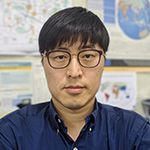
Mr. Sanggyun Kim
Head of Project Management Team, TEIN* Cooperation Center
Mr. Sanggyun Kim is head of project management team at TEIN*Cooperation Center. He is responsible for managing network connectivity and application activities in Asi@Connect.
He has been trying to coordinate and promote technical & application collaborative research and activities with R&E community in Asia Pacific and beyond. He also had been participating in many collaborative research projects including global demonstrations based several applications of medical and conferencing events.
Before joining TEIN*CC, He used to be the team leader of KOREN, one of NREN in Korea, and he's been participating in the R&E network community for 19 years.
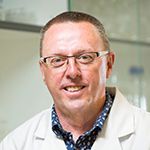
Pr. Gavin Ash
Executive Director, Institute for Life Sciences and Environment, University of Southern Queensland (USQ)
Professor Gavin Ash is currently the Executive Director for the Institute for Life Sciences and the Environment at the USQ. Prior to this position, he held several positions including the Director for the Centre for Crop Health (USQ), the Head of the School of Agriculture and Wine Sciences at the Charles Sturt University (CSU), and Professor of Plant Pathology (CSU). As a lecturer at CSU, he taught range of subjects including microbiology, plant pathology, botany, entomology, and genetics.
Prof. Ash has conducted plant pathology research on diseases in a range of crops including wheat, rice, canola, grapevines, peanuts, sweet potato, and jojoba. In addition to crops-based research, he has published widely on biological control of a range of pests. This research originally focused on the use of pathogens for the suppression of weeds in a number of systems, but quickly grew to include biological control of diseases, insects, and mollusks. He has over 120 referred journal publications and has held funding from the Australian Research Council, Grains Research and Development Corporation, Agrifutures, and the Australian Centre for International Agricultural Research. He has supervised over 30 research higher degree students to completion and is currently supervising 13 PhD students at USQ and CSU. Professor Ash holds a PhD from the University of New England in Plant Pathology
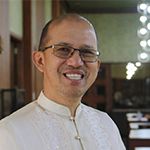
Dr. Glenn B. Gregorio
Director, Southeast Asian Regional Center for Graduate Study and Research in Agriculture (SEARCA)
Dr. Glenn B. Gregorio is the 11th SEARCA Director. His career was developed at the International Rice Research Institute (IRRI) for twenty-nine years as a plant breeder researcher; during which he also served as Post-Doctoral Fellow and assumed various research positions like Post-Doctoral Fellow, Scientist, Senior Scientist, and Deputy Division Head of IRRI’s Plant Breeding Genetics and Biotechnology Division. At IRRI, he worked on Rice Breeding for tolerance to saline-prone and problem soils, and as Coordinator for varietal development pipeline-cross cutting R&D and spent four years as Rice breeder for sub-Saharan Africa based in the International Institute for Tropical Agriculture (IITA) station in Nigeria. He had a three-year stint as global crop breeding manager for corn at East-West Seed Company. He is also a professor at the Institute of Crop Science, College of Agriculture and Food Science at UPLB. Dr. Gregorio obtained his Ph.D. in Genetics minor in Statistics, M.Sc. in Plant Breeding minor in Soil Science, and B.S. Agriculture at the University of the Philippines Los Baños (UPLB).
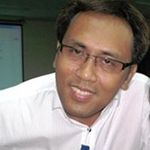
Dr. Ruben M. Lampayan
Associate Professor V, University of the Philippines Los Baños–College of Engineering and Agro-Industrial Technology (UPLB-CEAT) & Consultant, UPLB Foundation, Inc. (UPLBFI)
Dr. Rubenito M. Lampayan is currently a Professor at the University of the Philippines Los Baños (UPLB). He is also a consultant at the University of the Philippines Los Baños Foundation, Inc (UPLBFI). Before joining UPLB, he worked as a water management scientist at the International Rice Research Institute (IRRI) for more than 25 years. While at IRRI, he led a research program on adaptive research for water management in lowland rice-based cropping systems where he developed new technologies and novel approaches, tools, and methods for disseminating sound water management practices across public and private research, education, and extension organizations at national and international levels.
At UPLB, he provides teaching and research guidance to both undergraduate and postgraduate engineering students, develops and implements research projects, and engages with local and international research partners in the development and promotion of research-based technologies.
He completed his PhD in Resource Management and Environmental Science at the Australian National University in Canberra, Australia; and his MS degree (Irrigation Engineering and Management) at the Asian Institute of Technology in Bangkok, Thailand.
Technical Session
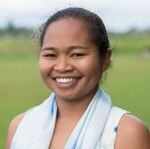
Dr. Ando M. Radanielson
Senior Research Fellow (Agricultural Systems), Institute for Life Sciences and the Environment (Research), USQ
Dr. Ando Mariot Radanielson is a Senior research Fellow at the Institute for Life Sciences and Environment of the University of Southern Queensland. She is a leading scientist in the development and application of crop models for sustainable farming systems design. In her research for cropping systems management optimization, she is using integrated approach combining crop and spatial modeling, field and glasshouse experiments, survey, and remote sensing monitoring to define target areas for maximum impact of improved varieties and adapted crop management options. Her work has relevance in addressing national and global challenges for sustainable development, food and nutrition security under changing environments and limited resources.

Dr. Adam Sparks
Primary Industries Development, Department of Primary Industries and Regional Development
Dr. Adam Sparks is a senior scientist, bioeconomic modeler and is currently based in Perth, Western Australia. He is working for the Department of Primary Industries and Regional Development (DPIRD) State of Western Australia. He is also an adjunct Associate Professor with the Centre for Crop Health at the University of Southern Queensland, Toowoomba, Queensland. He has more than 20 years of experiences in agricultural research with a focus on plant disease modelling. His experience combines expertise in agricultural research and development, project management, plant pathology, modelling, programming, and GIS gained through work in a broad range of institutions that have allowed him to have collaborations across Australia, south and south-east Asia, Africa and the US. Currently, he is working on developing a stochastic whole-farm model and models of powdery mildew in mungbeans, yellow spot on wheat and ascochyta blight on chickpeas and field pea, and canola blackleg.
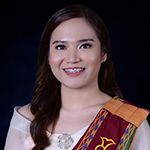
Ms. Hannah Jose
Agricultural and Biosystems Engineer, UPLBFI
Ms. Hannah W. Jose oversees the data management and modeling for the Philippines of the Technical Data Support of the AgPractices&Domains platform. She holds a baccalaureate degree in Agricultural and Biosystems Engineering Major in Land and Water Resources Engineering from the University of the Philippines Los Banos. She recently passed the Agricultural and Biosystems Engineer Licensure Examination conducted in September 2021.
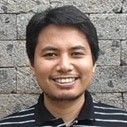
Dr. Val Randolf M. Madrid
Associate Professor, Institute of Computer Science, College of Arts and Sciences, UPLB
Dr. Val Randolf M. Madrid is an associate professor at the Institute of Computer Science, College of Arts and Sciences, University of the Philippines Los Baños. He holds a PhD is Computer Science from the same university. SEARCA engaged his services as web-based interface developer for this AgPractices&Domains platform.
About the Organizers
Click to view the details
 The Southeast Asian Regional Center for Graduate Study and Research in Agriculture (SEARCA) is one of the 26 specialist institutions of the Southeast Asian Ministers of Education Organization (SEAMEO). Established in 1966, SEARCA is mandated to strengthen institutional capacities in agricultural and rural development in Southeast Asia through graduate scholarship, research and development, and knowledge management. It serves the 11 SEAMEO member countries, namely, Brunei Darussalam, Cambodia, Indonesia, Lao PDR, Malaysia, Myanmar, the Philippines, Singapore, Thailand, Timor-Leste, and Vietnam. SEARCA is hosted by the Government of the Philippines on the campus of the University of the Philippines Los Baños (UPLB) in Laguna, Philippines. It is supported by donations from SEAMEO members and associate member states, other governments, and various international donor agencies.
The Southeast Asian Regional Center for Graduate Study and Research in Agriculture (SEARCA) is one of the 26 specialist institutions of the Southeast Asian Ministers of Education Organization (SEAMEO). Established in 1966, SEARCA is mandated to strengthen institutional capacities in agricultural and rural development in Southeast Asia through graduate scholarship, research and development, and knowledge management. It serves the 11 SEAMEO member countries, namely, Brunei Darussalam, Cambodia, Indonesia, Lao PDR, Malaysia, Myanmar, the Philippines, Singapore, Thailand, Timor-Leste, and Vietnam. SEARCA is hosted by the Government of the Philippines on the campus of the University of the Philippines Los Baños (UPLB) in Laguna, Philippines. It is supported by donations from SEAMEO members and associate member states, other governments, and various international donor agencies.
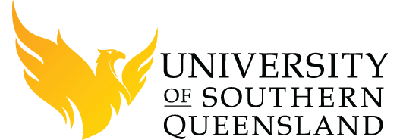 The University of Southern Queensland’s Institute for Life Sciences and the Environment provides a focus for researchers in agriculture, crop health, natural resource management, environment, and climate sciences. Research undertaken in the Institute is recognized as above world standard in key areas which supports the delivery of applied solutions that shape the future of global food production. The Institute’s strong partnerships with state, national and international governments and industries play key roles in developing and enhancing our research capacity to meet emerging needs.
The University of Southern Queensland’s Institute for Life Sciences and the Environment provides a focus for researchers in agriculture, crop health, natural resource management, environment, and climate sciences. Research undertaken in the Institute is recognized as above world standard in key areas which supports the delivery of applied solutions that shape the future of global food production. The Institute’s strong partnerships with state, national and international governments and industries play key roles in developing and enhancing our research capacity to meet emerging needs.
 Established in 1908, the University of the Philippines Los Baños (UPLB) has contributed to countless breakthroughs in research and established trailblazing leadership in agriculture, veterinary medicine, and forestry education in Southeast Asia. UPLB is a founding member of the Southeast Asian Regional Center for Graduate Study and Research in Agriculture (SEARCA) that aims to foster collaborative research with partner institutions to improve graduate education in agriculture, environment, and natural resources in Southeast Asia.
Established in 1908, the University of the Philippines Los Baños (UPLB) has contributed to countless breakthroughs in research and established trailblazing leadership in agriculture, veterinary medicine, and forestry education in Southeast Asia. UPLB is a founding member of the Southeast Asian Regional Center for Graduate Study and Research in Agriculture (SEARCA) that aims to foster collaborative research with partner institutions to improve graduate education in agriculture, environment, and natural resources in Southeast Asia.
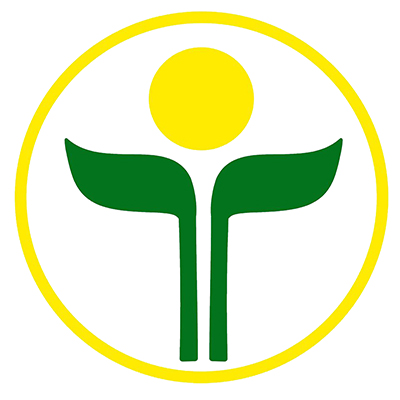 The University of the Philippines Los Baños Foundation Inc. (UPLBFI), an entity established by the University, aimed to facilitate and manage externally funded collaborative projects made with the University. With more than 40 years of experience in carrying out R&D projects in the field of science and technology, UPLBFI has developed expertise in program implementation, management & monitoring, and evaluation.
The University of the Philippines Los Baños Foundation Inc. (UPLBFI), an entity established by the University, aimed to facilitate and manage externally funded collaborative projects made with the University. With more than 40 years of experience in carrying out R&D projects in the field of science and technology, UPLBFI has developed expertise in program implementation, management & monitoring, and evaluation.
 TEIN*CC is a not-for-profit organization based in Seoul, Republic of Korea. They manage and operate the regional Research and Education network, TEIN, and its related activities under the Asi@Connect project. Asi@Connect provides dedicated high-capacity internet connectivity for research and education communities across Asia-Pacific; operating at speeds of up to 10 Gbps, it currently interconnects universities and research centers in 21 countries/economies across the region. It also connects to the 50 million European researchers and academics served by the GÉANT network and supports collaborative programs in areas such as Earth observation, disaster warning, climate research, food security, delivery of e-health and e-learning. Asi@Connect marks the 4th phase of EU funding to the Trans-Eurasia Information Network (TEIN) program which was launched as an Asia-Europe Meeting (ASEM) initiative in 2001.
TEIN*CC is a not-for-profit organization based in Seoul, Republic of Korea. They manage and operate the regional Research and Education network, TEIN, and its related activities under the Asi@Connect project. Asi@Connect provides dedicated high-capacity internet connectivity for research and education communities across Asia-Pacific; operating at speeds of up to 10 Gbps, it currently interconnects universities and research centers in 21 countries/economies across the region. It also connects to the 50 million European researchers and academics served by the GÉANT network and supports collaborative programs in areas such as Earth observation, disaster warning, climate research, food security, delivery of e-health and e-learning. Asi@Connect marks the 4th phase of EU funding to the Trans-Eurasia Information Network (TEIN) program which was launched as an Asia-Europe Meeting (ASEM) initiative in 2001.
Publication
SUMMARY OF PROCEEDINGS: Workshop on Modeling Management of Climatic Stress in Rice-based Cropping Systems: Application of the AgPractices&Domains Platform
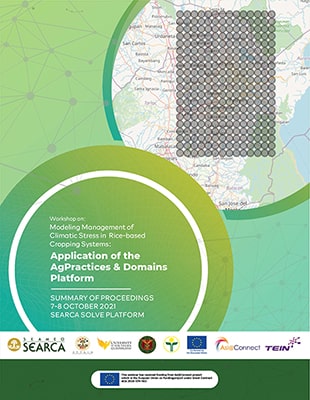 Click to downloadFood and nutrition security of Southeast Asian (SEA) countries still rely mostly in smallholder farmers whose farming systems are in vulnerable areas prone to various abiotic and biotic stresses. Biotic stress management remains a main challenge as this requires accurate estimations of viable conditions for efficient production. Not to mention the shifts in seasons and being aggravated by pest and disease, the attainable yields vary between fields at farm and landscape levels.
Click to downloadFood and nutrition security of Southeast Asian (SEA) countries still rely mostly in smallholder farmers whose farming systems are in vulnerable areas prone to various abiotic and biotic stresses. Biotic stress management remains a main challenge as this requires accurate estimations of viable conditions for efficient production. Not to mention the shifts in seasons and being aggravated by pest and disease, the attainable yields vary between fields at farm and landscape levels.
Modeling is a useful research tool that can help research to detangle key determinants of productivity under stresses. Decision-making support models can generate valuable specific information to improve farming systems productivity and its impact at different scales, ranging from the field to sub-local region, and to the entire country.
With the above premise, the University of Southern Queensland (USQ), in collaboration with the Southeast Asian Regional Center for Graduate Study and Research in Agriculture (SEARCA) and the University of the Philippines Los Baños (UPLB), is developing the AgPractices&Domains tool. It aims to provide integrated pest and disease management options in rice-based cropping systems. From the use of tool comes the platform that will allow a network of researchers to carry out rice cropping systems’ monitoring and evaluation combined with a documentation of community of practices that will further facilitate learning and exchanges between institutions and countries.
Meanwhile, SEARCA is currently developing a knowledge platform for supporting research activities in the Southeast Asian region by tapping into relevant information on agriculture, forestry, and natural resources. The AgPractices&Domains tool by USQ will be a working foundation for the SEARCA know ledge platform and network to develop a large-scale application, that includes major rice growing areas in Southeast Asia, and broader application in different crops.